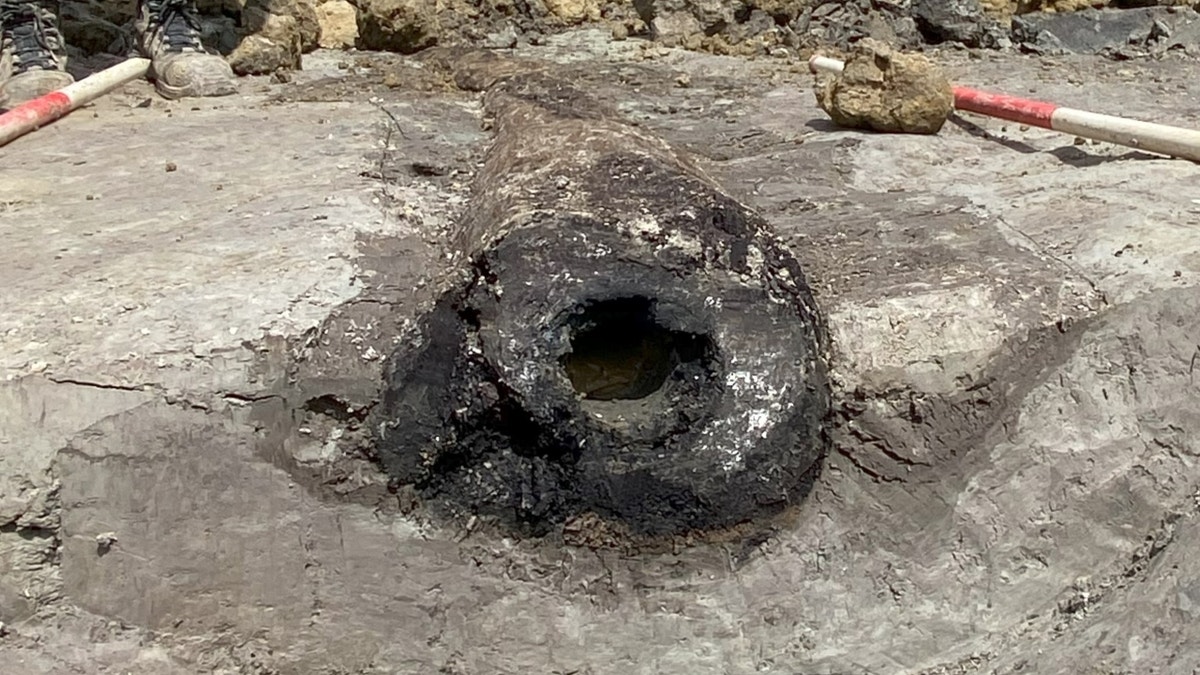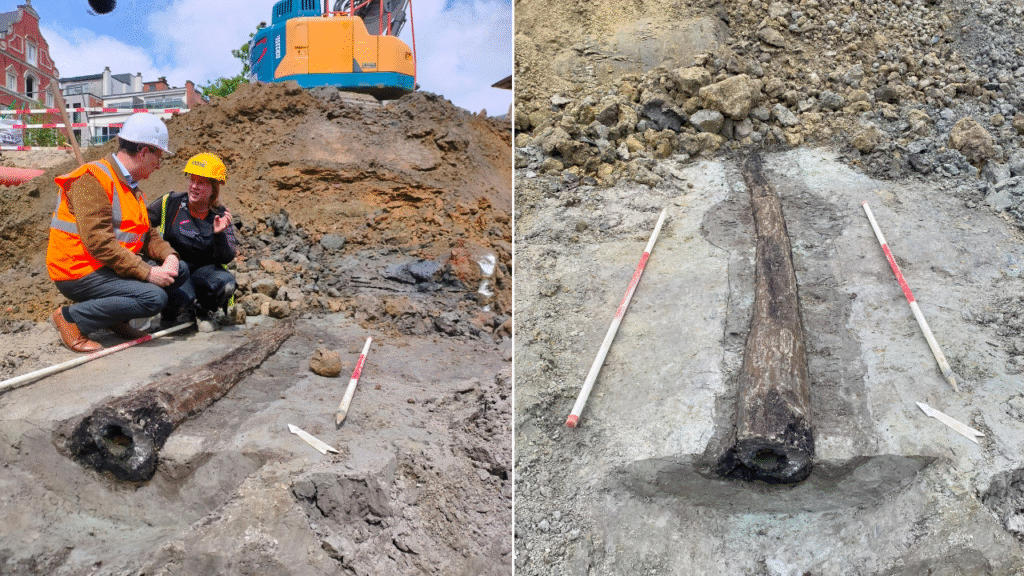A well-preserved Ancient Roman wooden water pipe was recently uncovered in an unexpected place: the marshlands of Belgium.
The discovery was announced by the city of Leuven, a city east of Brussels in Flanders, on May 7.
The pipe was uncovered during an excavation on Brusselsestraat, a street that runs through the central part of the city, in order to make room for student housing.
‘DEMONIC’ MONKEY, TWEEZERS AND ANCIENT COINS UNCOVERED BY ARCHAEOLOGISTS DURING GERMAN CHURCH EXCAVATION
Pictures show the proud archaeological crew beaming next to the ancient pipe which, at first glance, looks like a log. But ancient wood-workers cut a cylindrical hole through the wood to give it the function of a pipe.
The pipe dates back to the second and third centuries A.D. The city said that, at the time, Leuven “was a tiny spot in the vast Roman Empire, which stretched from Great Britain to Egypt and from Gibraltar to the Caspian Sea.”
“In our region, Leuven likely served as a ‘diverticulum,’ a settlement of several houses and farms at a crossroads, near a Roman road connecting the major axis between Cologne and Boulogne,” the press release also said, which was translated from Dutch to English.
“The exceptional preservation of the wood makes it a unique find that contributes to the understanding of Roman presence in Leuven.”
ANCIENT ROMAN HELMET TURNS UP IN UNUSUAL LOCATION: ‘EXCEPTIONALLY RARE’
Dirk Vansina, a city alderman for real estate heritage, emphasized that the discovery is highly unusual in Flanders.
“At numerous locations, including in Tienen, indications of what was once a Roman wooden water pipe have been excavated before,” the city official said.

“But never the water pipe itself, as the wooden logs used by the Romans had rotted away over time.”
For more Lifestyle articles, visit foxnews.com/lifestyle
Vasina added that wood rot occurs when a place’s groundwater level varies between wet and dry – and luckily for the wooden pipe, the groundwater levels have been stable throughout time.
“It is the Dijle [River] that ensured the wooden water pipe remained exceptionally well-preserved over the centuries,” the expert said.
“Due to the proximity of the Dijle, the ground here was always marshy, and the passage of time has been very gentle on this water pipe.”
The pipe will be transferred to a conservation studio where it will continue to be studied.
Once a sample is taken to determine its age, it will be freeze-dried for preservation purposes and possibly displayed in the future.
Archaeologists also came across other discoveries during the excavation, such as ancient pottery shards, but the city emphasized that the water pipe “is of a different caliber.”
“The size of Leuven in Roman times was limited, but finds like this prove that the Roman presence was certainly not incidental and that it is worthwhile to continue digging and gradually uncover this past,” Vasina said.
Read the full article here

